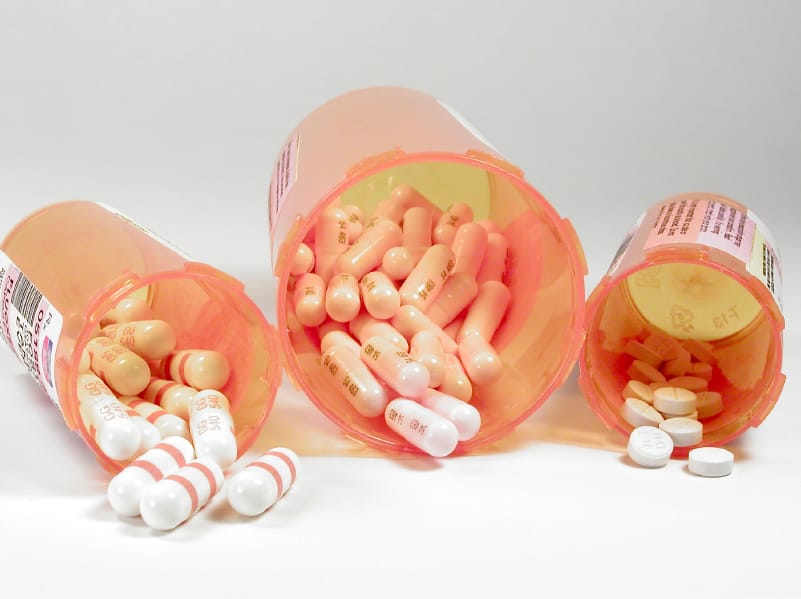Mood disorders are a group of mental health conditions that involve dysfunctional changes in the everyday stability of mood or psychological/emotional state of mind. Well-known conditions within this group include major depression and the classic manic-depressive illness called bipolar I disorder. One of the widely used treatments for bipolar I disorder is the mood-stabilizing medication lithium. According to the results of a 2013 study in the British Medical Journal, lithium may have even greater usefulness in mood disorder treatment; in fact, it appears to significantly reduce the risks for suicide in people affected by either bipolar disorder or depression.
Mood Disorder Basics
In addition to major depression, the mood disorders category includes a depressive illness called dysthymia or persistent depressive disorder. While people affected by major depression have prominent depression-related symptoms that last for at least two consecutive weeks, people affected by dysthymia have less severe depression-related symptoms that last for much more extended periods of time. In addition to bipolar I disorder, the mood disorders category includes bipolar illnesses called bipolar II disorder and cyclothymic disorder. People affected by bipolar II experience major depressive episodes just like people with bipolar I disorder; however, they experience less severe manic episodes than those associated with classic manic-depression. People affected by cyclothymic disorder experience relatively restrained episodes of both mania and depression. Underlying factors that can contribute to the onset of any type of mood disorder include imbalances in the levels of certain key brain chemicals, genetic inheritance, and the cumulative effects of everyday stress. Girls and women develop depressive illnesses almost twice as frequently as boys and men. However, bipolar illnesses appear just as frequently in males as they do in females. In addition to lithium and other mood-stabilizing medications, potential treatments for various types of mood disorder include SSRIs and other medication classified as antidepressants, psychotherapy, and a group of medications called atypical antipsychotics.
Lithium Basics
Lithium is an oral medication produced in forms that include capsules, tablets, liquid solutions and long-acting, extended-release tablets. Doctors use it in the treatment of bipolar I disorder in order to prevent or reduce the severity of episodes of the unusually energetic state called mania. Some doctors also use lithium during the treatment of depression, or during the treatment of other conditions such as impulse-control disorders, schizophrenia, or certain disorders that affect the health of the blood flowing through the circulatory system.
Mood Disorders and Suicide
People with mood disorders have significantly elevated suicide risks, the authors of a 2007 study review in the journal Current Opinion in Psychiatry report. The clearest risks appear in people with major depression, bipolar I disorder or bipolar II disorder, whose illnesses by definition feature prominent episodes of depression and/or mania. However, people with other mood disorders also experience elevations in their chances of thinking about suicide, making plans for suicide, or actively attempting suicide. While the exact level of risk varies according to the research source under consideration, some studies indicate that mood disorders increase any given individual’s suicide-related thoughts or actions by as much as 30 times above average.
Lithium’s Role in Prevention
In the study published in the British Medical Journal, an international research team looked at the results of 48 earlier studies, which together examined the effects of lithium in over 6,500 people diagnosed with a mood disorder. These earlier studies were not designed to assess lithium’s usefulness in suicide prevention; however, the authors of the British Medical Journal study were able to use them as a basis for assessing lithium’s suicide-related effects. After making their assessments, the current study’s authors concluded that use of lithium decreases the suicide rate of people with mood disorders by 60 percent. They also concluded that lithium use decreases the overall death rate in mood disorder patients by essentially the same amount. Interestingly, use of the medication does not reduce participation in a behavior called nonsuicidal self-injury, which does not have an underlying suicidal motivation. The authors of the study aren’t sure exactly why lithium use curbs suicide rates in mood disorder patients. One possible explanation is that lithium’s effects help prevent the symptom relapses that sometimes occur in people undergoing treatment for depression or bipolar disorder. However, use of lithium may also help reduce suicide risks by regulating the levels of impulsive or aggressive behavior that commonly appear in association with bipolar disorder and/or depression.

